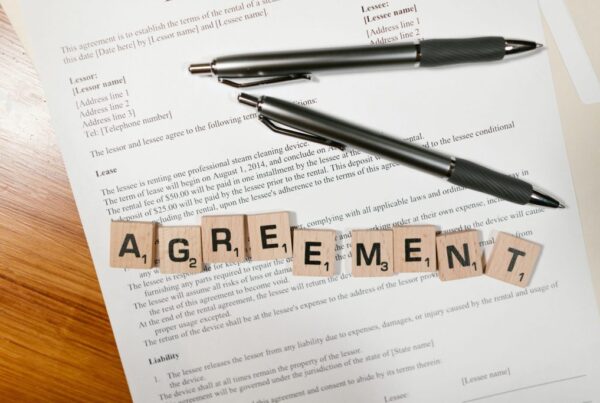This post originally appeared on SimonCRE Insights Blog and is republished with permission. Find out how to syndicate your content with theBrokerList.
However, keep in mind: “If you don’t know your numbers, you don’t know your business” – Marcus Lemonis, self-made millionaire CEO of Camping World, host of The Profit, and serial entrepreneur. This quote can be directly applied to much in life, but especially the real estate due diligence process.
Here’s a high-level overview of the process of buying a commercial property, whether it’s a single-tenant net lease building or a regional shopping center.
Identify the Opportunity
First things first, before jumping into purchasing the first commercial property you see, conduct a myriad of research, stay updated with industry news, and even partner with a commercial real estate broker. Make sure to spend adequate time securing the right team (broker, lender, financial analyst, legal, etc.)
Then, set your specific investment criteria and your timing. For example, is this for a 1031 Exchange for tax deferral? If so, ensure the purchase would check all the required boxes during the restricted time frame. Whittle down your list of prospective properties by analyzing market research for each.
Undergo Underwriting
This stage consists of conducting an in-depth financial analysis with current data (including occupancy, rental income stream, taxes, and utilities) as well as assumptions for future performance. Also, unless you will be a cash buyer, an equity source and debt source or loan will be needed. Determine whether you’ll be able to obtain the capital necessary to acquire the property.
Important answers to uncover:
-
-
- Why is the property for sale?
- Should your strategy be more aggressive or conservative (based on current market conditions)?
- What are the current tenants’ rents? Can they be increased?
- What would be your expected ROI?
- Can expenses be reduced?
- What would be your exit strategy?
-
Submit the LOI
The Letter of Intent to purchase real estate represents the first formal action taken between a seller and a buyer. It addresses major points of interest/concern to be negotiated over an agreed upon period of time, resulting in the final Purchase and Sale Agreement. You should familiarize yourself with the main terms such as cap rate, NOI, ROI, debt coverage ratio, types of leases, etc.
Here are some less common, but important lease terms to know before buying a multi-tenant property.
Complete Due Diligence
This time-restrained period during the commercial property buying process has the ultimate goal of revealing the rights, boundary lines, accepted future uses, development options, and more. Due diligence will also expose both reported and unknown issues related to title, surveys, easements, encumbrances, liens, or restrictions that might affect the use of the property or its development. Restriction examples could be licensing requirements, environmental issues, zoning restrictions or legal compliance.
One critical step to not skip over in this stage is to interview the current tenants. For instance, if there was a plumbing issue for a tenant a month ago and the existing owner (seller) has not been responsive, the problem will ultimately become your responsibility when you close and become the landlord.
Pre-Close
This represents the point in the process where most prospective buyers are removed from the seller’s picks due to bid price, lack of ability to execute, or buyers pulling out. The remaining few prospects are instructed to submit their best and final offers.
The “winning” buyer then submits the PSA, or the contract created between the buyer and the seller to acknowledge all relevant information about the property exchanging hands and each parties’ rights, obligations and liabilities.
Close
Once this final stage of the acquisition process is reached, an escrow agent is hired to hold deposits and any other funds in a third-party account until all preconditions in the escrow agreement are met by both parties.
Unlike when closing on a home, commercial escrows are much more complex and formal. In fact, it is common for the capital to come from several sources instead. Commercial transactions have far less regulations than residential, including no Real Estate Settlement Procedures Act (RESPA), and the paperwork is more customized.
As mentioned, this is just the framework for a successful commercial property purchase. Even if it’s not your fist, it is always a more complex process so keep these details and tips in mind.





